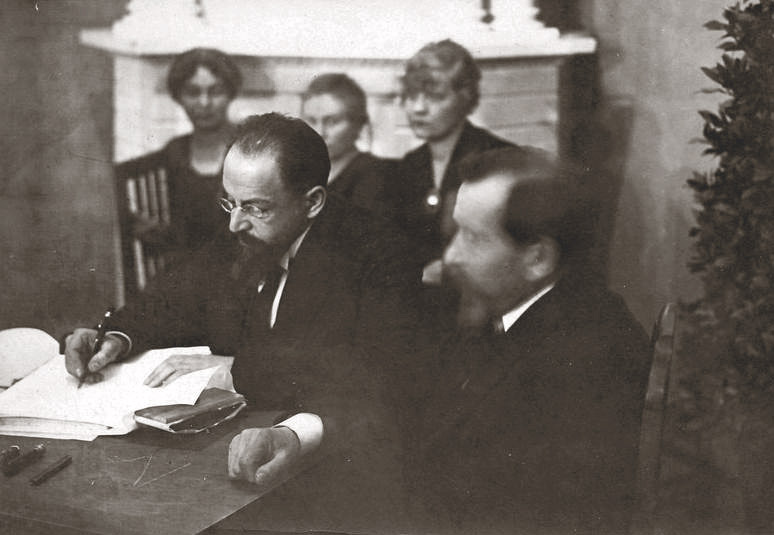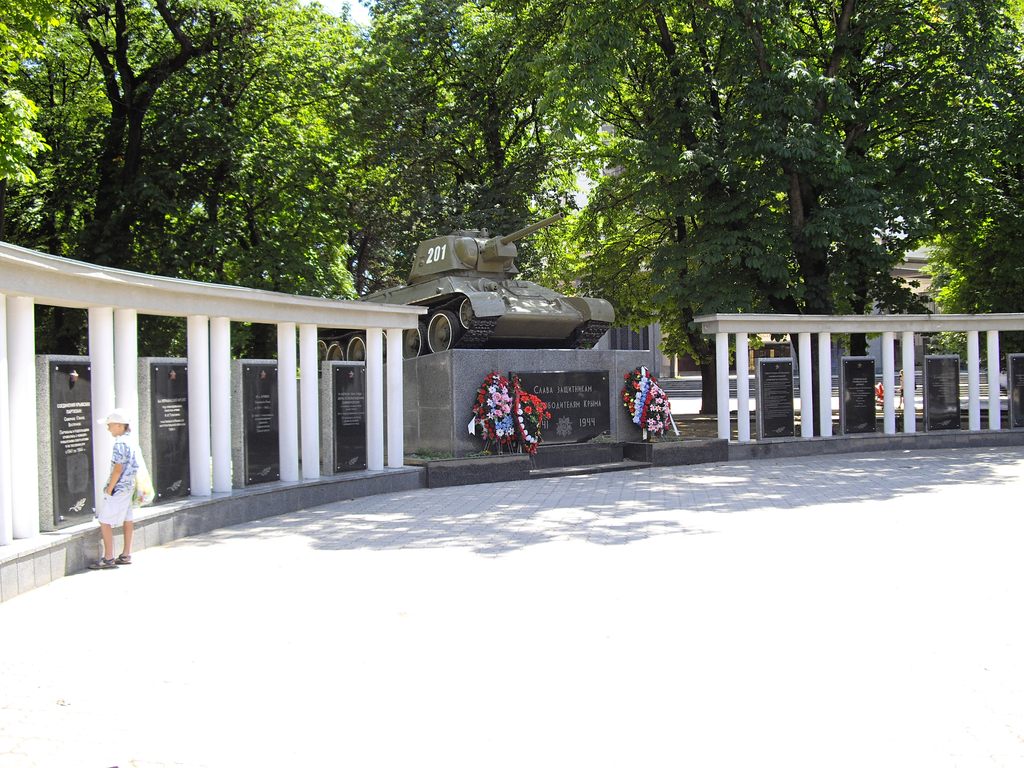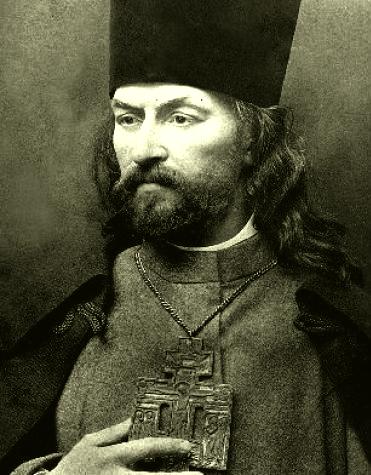|
Adolf Joffe
Adolph Abramovich Joffe (russian: Адо́льф Абра́мович Ио́ффе, alternative transliterations Adol'f Ioffe or, rarely, Yoffe) (10 October 1883 in Simferopol – 16 November 1927 in Moscow) was a Russian revolutionary, a Bolshevik politician and a Soviet diplomat of Karaite descent. Biography Revolutionary career Adolf Abramovich Joffe was born in Simferopol, Crimea, Russian Empire in a wealthy Karaite family.See Albert S. Lindemann. ''Esau's Tears: Modern Anti-Semitism and the Rise of the Jews'', Cambridge University Press, 1997; pg. 430. He became a social democrat in 1900 while still in high school, formally joining the Russian Social Democratic Labor Party in 1903. In 1904 Joffe was sent to Baku, which he had to flee to avoid arrest. He was then sent to Moscow, but had to flee again, this time abroad. After the events of Bloody Sunday on 9 January 1905, Joffe returned to Russia and took an active part in the Russian Revolution of 1905. In early ... [...More Info...] [...Related Items...] OR: [Wikipedia] [Google] [Baidu] |
Simferopol
Simferopol () is the second-largest city in the Crimea, Crimean Peninsula. The city, along with the rest of Crimea, is internationally recognised as part of Ukraine, and is considered the capital of the Autonomous Republic of Crimea. However, it is under the ''de facto'' control of Russia, which Annexation of Crimea by the Russian Federation, annexed Crimea in 2014 and regards Simferopol as the capital of the Republic of Crimea. Simferopol is an important political, economic and transport hub of the peninsula, and serves as the administrative centre of both Simferopol Municipality and the surrounding Simferopol District. After the 1784 Annexation of Crimea by the Russian Empire, annexation of the Crimean Khanate by the Russian Empire, the Russian empress decreed the foundation of the city with the name Simferopol on the location of the Crimean Tatars, Crimean Tatar town of Aqmescit ("White Mosque"). The population was Etymologies The name Simferopol ( uk, Сімферо́ ... [...More Info...] [...Related Items...] OR: [Wikipedia] [Google] [Baidu] |
Bolshevik
The Bolsheviks (russian: Большевики́, from большинство́ ''bol'shinstvó'', 'majority'),; derived from ''bol'shinstvó'' (большинство́), "majority", literally meaning "one of the majority". also known in English as the Bolshevists,. It signifies both Bolsheviks and adherents of Bolshevik policies. were a far-left, revolutionary Marxist faction founded by Vladimir Lenin that split with the Mensheviks from the Marxist Russian Social Democratic Labour Party (RSDLP), a revolutionary socialist political party formed in 1898, at its Second Party Congress in 1903. After forming their own party in 1912, the Bolsheviks took power during the October Revolution in the Russian Republic in November 1917, overthrowing the Provisional Government of Alexander Kerensky, and became the only ruling party in the subsequent Soviet Russia and later the Soviet Union. They considered themselves the leaders of the revolutionary proletariat of Russia. Their beliefs and ... [...More Info...] [...Related Items...] OR: [Wikipedia] [Google] [Baidu] |
Vienna
en, Viennese , iso_code = AT-9 , registration_plate = W , postal_code_type = Postal code , postal_code = , timezone = CET , utc_offset = +1 , timezone_DST = CEST , utc_offset_DST = +2 , blank_name = Vehicle registration , blank_info = W , blank1_name = GDP , blank1_info = € 96.5 billion (2020) , blank2_name = GDP per capita , blank2_info = € 50,400 (2020) , blank_name_sec1 = HDI (2019) , blank_info_sec1 = 0.947 · 1st of 9 , blank3_name = Seats in the Federal Council , blank3_info = , blank_name_sec2 = GeoTLD , blank_info_sec2 = .wien , website = , footnotes = , image_blank_emblem = Wien logo.svg , blank_emblem_size = Vienna ( ; german: Wien ; ba ... [...More Info...] [...Related Items...] OR: [Wikipedia] [Google] [Baidu] |
Menshevik
The Mensheviks (russian: меньшевики́, from меньшинство 'minority') were one of the three dominant factions in the Russian socialist movement, the others being the Bolsheviks and Socialist Revolutionaries. The factions emerged in 1903 following a dispute within the Russian Social Democratic Labour Party (RSDLP) between Julius Martov and Vladimir Lenin. The dispute originated at the 2nd Congress of the RSDLP, ostensibly over minor issues of party organization. Martov's supporters, who were in the minority in a crucial vote on the question of party membership, came to be called ''Mensheviks'', derived from the Russian ('minority'), while Lenin's adherents were known as ''Bolsheviks'', from ('majority'). Despite the naming, neither side held a consistent majority over the course of the entire 2nd Congress, and indeed the numerical advantage fluctuated between both sides throughout the rest of the RSDLP's existence until the Russian Revolution. The split ... [...More Info...] [...Related Items...] OR: [Wikipedia] [Google] [Baidu] |
Germany
Germany,, officially the Federal Republic of Germany, is a country in Central Europe. It is the second most populous country in Europe after Russia, and the most populous member state of the European Union. Germany is situated between the Baltic and North seas to the north, and the Alps to the south; it covers an area of , with a population of almost 84 million within its 16 constituent states. Germany borders Denmark to the north, Poland and the Czech Republic to the east, Austria and Switzerland to the south, and France, Luxembourg, Belgium, and the Netherlands to the west. The nation's capital and most populous city is Berlin and its financial centre is Frankfurt; the largest urban area is the Ruhr. Various Germanic tribes have inhabited the northern parts of modern Germany since classical antiquity. A region named Germania was documented before AD 100. In 962, the Kingdom of Germany formed the bulk of the Holy Roman Empire. During the 16th ce ... [...More Info...] [...Related Items...] OR: [Wikipedia] [Google] [Baidu] |
Berlin
Berlin ( , ) is the capital and largest city of Germany by both area and population. Its 3.7 million inhabitants make it the European Union's most populous city, according to population within city limits. One of Germany's sixteen constituent states, Berlin is surrounded by the State of Brandenburg and contiguous with Potsdam, Brandenburg's capital. Berlin's urban area, which has a population of around 4.5 million, is the second most populous urban area in Germany after the Ruhr. The Berlin-Brandenburg capital region has around 6.2 million inhabitants and is Germany's third-largest metropolitan region after the Rhine-Ruhr and Rhine-Main regions. Berlin straddles the banks of the Spree, which flows into the Havel (a tributary of the Elbe) in the western borough of Spandau. Among the city's main topographical features are the many lakes in the western and southeastern boroughs formed by the Spree, Havel and Dahme, the largest of which is Lake Müggelsee. Due to its l ... [...More Info...] [...Related Items...] OR: [Wikipedia] [Google] [Baidu] |
Russian Revolution Of 1905
The Russian Revolution of 1905,. also known as the First Russian Revolution,. occurred on 22 January 1905, and was a wave of mass political and social unrest that spread through vast areas of the Russian Empire. The mass unrest was directed against the Tsar, nobility, and ruling class. It included worker strikes, peasant unrest, and military mutinies. In response to the public pressure, Tsar Nicholas II enacted some constitutional reform (namely the October Manifesto). This took the form of establishing the State Duma, the multi-party system, and the Russian Constitution of 1906. Despite popular participation in the Duma, the parliament was unable to issue laws of its own, and frequently came into conflict with Nicholas. Its power was limited and Nicholas continued to hold the ruling authority. Furthermore, he could dissolve the Duma, which he often did. The 1905 revolution was primarily spurred by the international humiliation as a result of the Russian defeat in the Russo-Japa ... [...More Info...] [...Related Items...] OR: [Wikipedia] [Google] [Baidu] |
Bloody Sunday (1905)
Bloody Sunday or Red Sunday ( rus, Крова́вое воскресе́нье, r=Krovávoe voskresénje, p=krɐˈvavəɪ vəskrʲɪˈsʲenʲjɪ) was the series of events on Sunday, in St Petersburg, Russia, when unarmed demonstrators, led by Father Georgy Gapon, were fired upon by soldiers of the Imperial Guard as they marched towards the Winter Palace to present a petition to Tsar Nicholas II of Russia. Bloody Sunday caused grave consequences for the Tsarist autocracy governing Imperial Russia: the events in St. Petersburg provoked public outrage and a series of massive strikes that spread quickly to the industrial centres of the Russian Empire. The massacre on Bloody Sunday is considered to be the start of the active phase of the Revolution of 1905. In addition to beginning the 1905 Revolution, historians such as Lionel Kochan in his book ''Russia in Revolution 1890–1918'' view the events of Bloody Sunday to be one of the key events which led to the Russian Revolution ... [...More Info...] [...Related Items...] OR: [Wikipedia] [Google] [Baidu] |
Baku
Baku (, ; az, Bakı ) is the capital and largest city of Azerbaijan, as well as the largest city on the Caspian Sea and of the Caucasus region. Baku is located below sea level, which makes it the lowest lying national capital in the world and also the largest city in the world located below sea level. Baku lies on the southern shore of the Absheron Peninsula, alongside the Bay of Baku. Baku's urban population was estimated at two million people as of 2009. Baku is the primate city of Azerbaijan—it is the sole metropolis in the country, and about 25% of all inhabitants of the country live in Baku's metropolitan area. Baku is divided into twelve administrative raions and 48 townships. Among these are the townships on the islands of the Baku Archipelago, and the town of Oil Rocks built on stilts in the Caspian Sea, away from Baku. The Inner City of Baku, along with the Shirvanshah's Palace and Maiden Tower, were inscribed as a UNESCO World Heritage Site in 2000. The c ... [...More Info...] [...Related Items...] OR: [Wikipedia] [Google] [Baidu] |
High School
A secondary school describes an institution that provides secondary education and also usually includes the building where this takes place. Some secondary schools provide both '' lower secondary education'' (ages 11 to 14) and ''upper secondary education'' (ages 14 to 18), i.e., both levels 2 and 3 of the ISCED scale, but these can also be provided in separate schools. In the US, the secondary education system has separate middle schools and high schools. In the UK, most state schools and privately-funded schools accommodate pupils between the ages of 11–16 or 11–18; some UK private schools, i.e. public schools, admit pupils between the ages of 13 and 18. Secondary schools follow on from primary schools and prepare for vocational or tertiary education. Attendance is usually compulsory for students until age 16. The organisations, buildings, and terminology are more or less unique in each country. Levels of education In the ISCED 2011 education scale levels 2 and 3 c ... [...More Info...] [...Related Items...] OR: [Wikipedia] [Google] [Baidu] |
Social Democrat
Social democracy is a Political philosophy, political, Social philosophy, social, and economic philosophy within socialism that supports Democracy, political and economic democracy. As a policy regime, it is described by academics as advocating Economic interventionism, economic and social interventions to promote social justice within the framework of a liberal-democratic polity and a capitalist-oriented mixed economy. The protocols and norms used to accomplish this involve a commitment to Representative democracy, representative and participatory democracy, measures for income redistribution, regulation of the economy in the Common good, general interest, and social welfare provisions. Due to longstanding governance by social democratic parties during the post-war consensus and their influence on socioeconomic policy in Northern and Western Europe, social democracy became associated with Keynesianism, the Nordic model, the social-liberal paradigm, and welfare states within po ... [...More Info...] [...Related Items...] OR: [Wikipedia] [Google] [Baidu] |
Crimea
Crimea, crh, Къырым, Qırım, grc, Κιμμερία / Ταυρική, translit=Kimmería / Taurikḗ ( ) is a peninsula in Ukraine, on the northern coast of the Black Sea, that has been occupied by Russia since 2014. It has a population of 2.4 million. The peninsula is almost entirely surrounded by the Black Sea and the smaller Sea of Azov. The Isthmus of Perekop connects the peninsula to Kherson Oblast in mainland Ukraine. To the east, the Crimean Bridge, constructed in 2018, spans the Strait of Kerch, linking the peninsula with Krasnodar Krai in Russia. The Arabat Spit, located to the northeast, is a narrow strip of land that separates the Sivash lagoons from the Sea of Azov. Across the Black Sea to the west lies Romania and to the south is Turkey. Crimea (called the Tauric Peninsula until the early modern period) has historically been at the boundary between the classical world and the steppe. Greeks colonized its southern fringe and were absorbed by the Ro ... [...More Info...] [...Related Items...] OR: [Wikipedia] [Google] [Baidu] |









